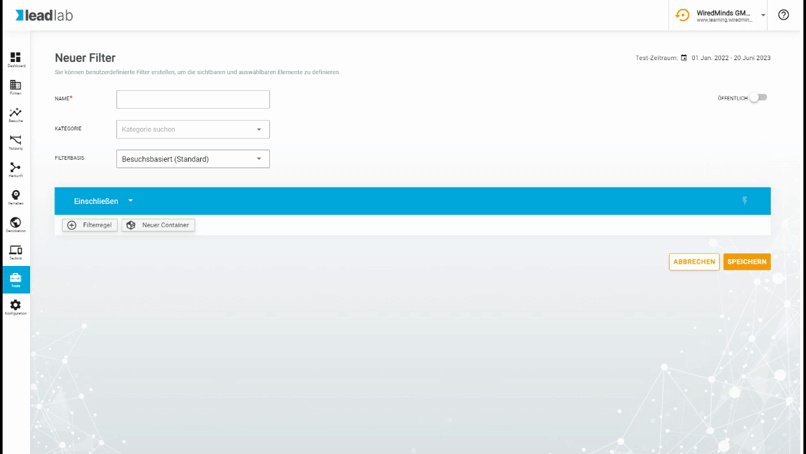Regular expressions can often be used in filters or scoring rules within LeadLab. This enables more complex queries with just a few characters.
What are regular expressions?
Regular expressions (also regex) are character strings that are used to check texts for certain properties or combinations of properties.
How do regular expressions work?
A regular expression is stored in a filter rule, for example, which then searches and filters out all measured values according to this pattern. This allows you to save time because you do not have to save all entries individually, or create more complex queries that would not be possible without regular expressions. A regular expression is always enclosed in square brackets [Beispiel].
Example of existing regular expressions:
. Jegliches Zeichen (Ausnahme der Zeilenumbruch)
A-Z ABCDEFGHIJKLMNOPQRSTVWXYZ
a-z abcdefghijklmnopqrstvwxyz
0-9 0123456789
\w Wort = Mindestens ein Buchstabe, eine Ziffer oder Unterstrich
\W Kein Wort. Abkürzung für [^a-zA-Z0-9_]
\d Ziffer (Abkürzung für [0-9]).
\D keine Ziffer (Abkürzung für [^0-9])Further information and examples on the topic of regular expressions can be found here.

